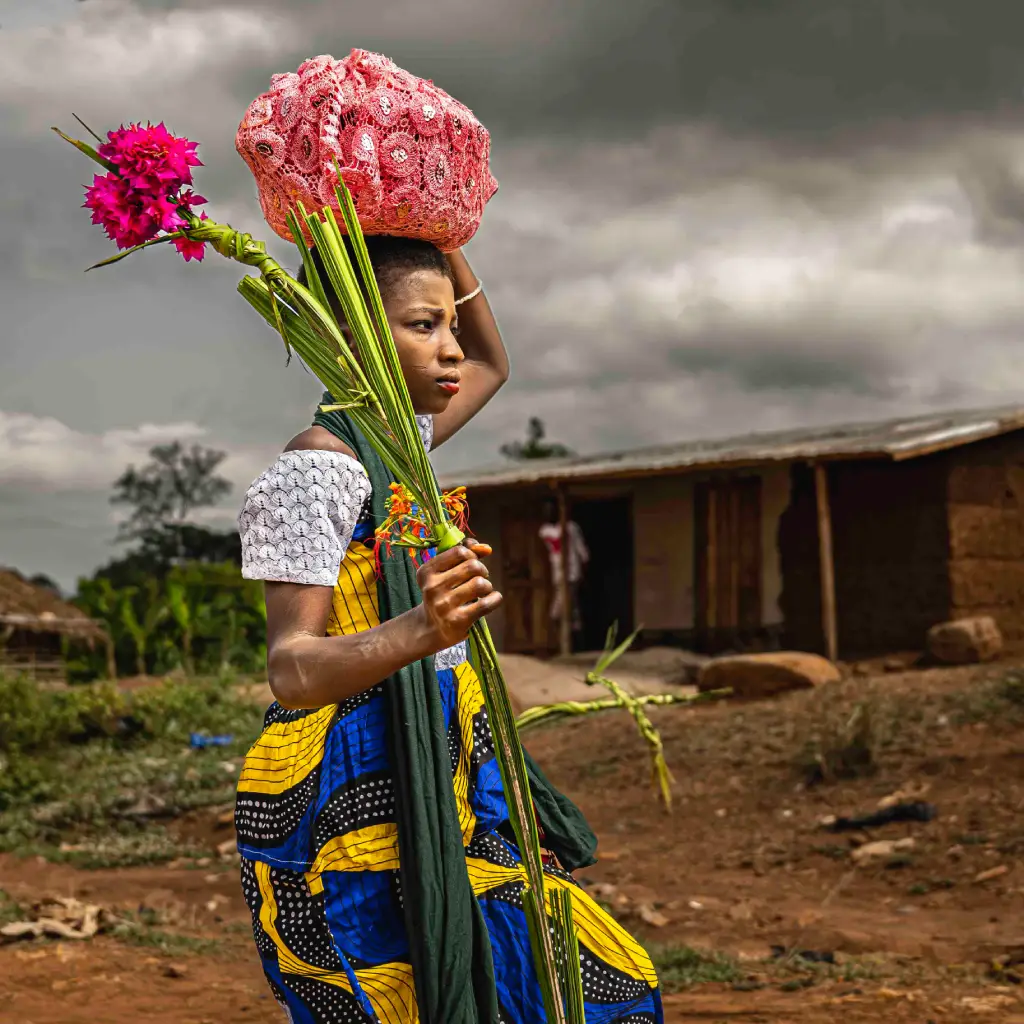Day 1: International Flight and Arrival
International flight to Lagos. Upon arrival, we will transfer to the hotel to rest and prepare for the start of our journey.
Day 2: Lagos
We will begin the day with a visit to Nigeria’s economic capital — a fascinating metropolis full of contrasts. We will visit the National Museum, which offers a magnificent introduction to the rich cultural and ethnic diversity of Nigeria, especially Yoruba culture, which predominates in this region and represents 20% of the population.
Afterwards, we will take a walk around Lagos Island, where we will enjoy both religious and colonial buildings that reflect British heritage, as well as the bustling atmosphere of its markets. We will have lunch and end the day with a boat ride to Tarkwa Bay, where we will discover a beachside village. It is astonishing how this area coexists within a city of over 20 million people, which remained the capital of the country until 1991.
Day 3: Badagry
After breakfast, we will begin our journey westward, travelling around two hours to Badagry — a charming coastal town steeped in history. We will stroll among its old, decaying but characterful buildings, offering a glimpse into Nigeria’s colonial past.
Days 4 and 5: Abeokuta
We will head east to reach Abeokuta — one of the most fascinating cities in West Africa. Surrounded by nature, lush vegetation and rocky outcrops, Abeokuta boasts the finest Afro-Brazilian architecture in all of Nigeria.
This city, with exceptional charm and a warm, welcoming population, will give us a unique insight into Brazilian influence in Nigeria. We will also visit the sacred Olumo Rock — a mountain of great importance to the Yoruba, accessed via paths flanked by voodoo temples.
Day 6: Ibadan and Ife
On the way to Ife, we will stop at the spectacular market of Ibadan. We will then continue to Ife — a city of fundamental importance to the Yoruba, as legend holds that this ethnic group originated there. Upon arrival, we will explore Enuwa Square, the city centre, and visit the Oba’s Palace, a symbol of Yoruba leadership. We will also see the Opa Oranmiyan monolith and the city museum to further understand Yoruba tradition and culture.
Day 7: Oshogbo
The next stop will be Oshogbo — a place of great importance in Yoruba culture. Here lies the Osun-Osogbo Sacred Grove, the only cultural site in Nigeria declared a UNESCO World Heritage Site. It is one of the last remaining primary forests in southern Nigeria and is considered the dwelling place of Osun, the goddess of fertility, represented by the river that flows through it. The site contains sculptures and shrines dedicated to Osun and other Yoruba deities.
This place symbolises the ancient tradition of consecrating forests to the deities. Rituals and festivals are held in the grove, and it is not uncommon to see people performing purification ceremonies in the river.
Days 8 and 9: Route to Abuja
We will travel at a relaxed pace over the 500 kilometres that separate us from the federal capital, allowing us to enjoy the land, the villages, and the customs of a region entirely untouched by tourism. One key stop will be Ilorin — a culturally and naturally rich city, home to the Esie Museum, considered the best in Africa for stone sculptures, and the Emir’s Palace.
Day 10: Abuja and Return
We will visit Abuja, the meeting point between the Christian south and the Muslim north. In this regard, the impressive National Mosque stands out, with its golden dome. We will also visit other places such as the Nike Art Gallery. At the scheduled time, we will transfer to the airport.



